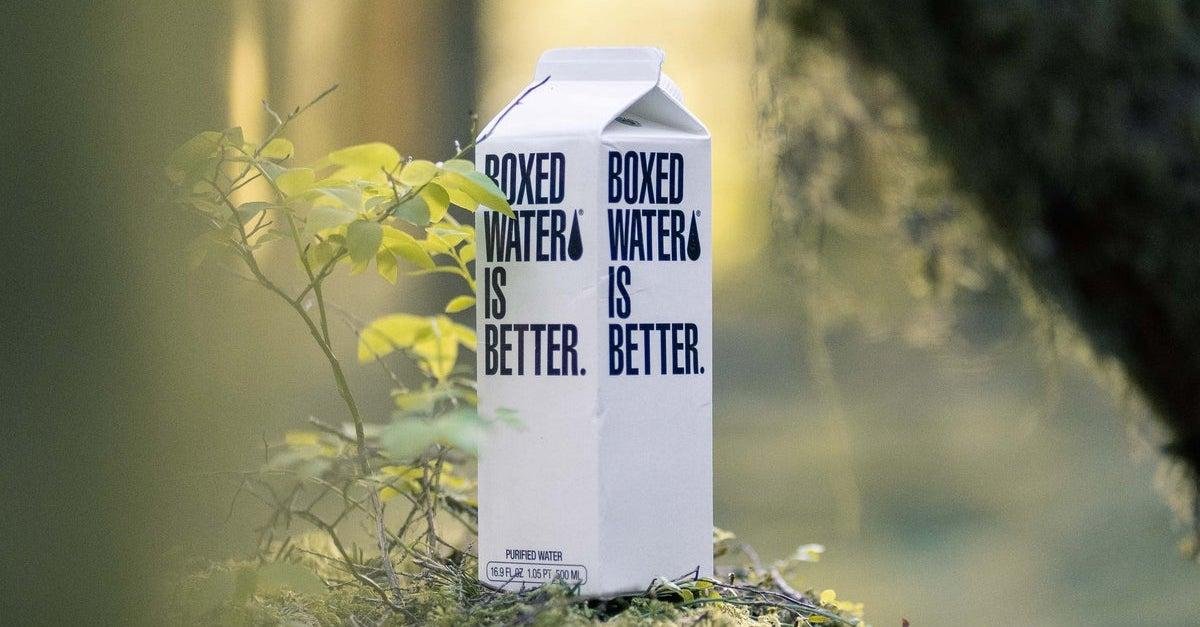Empowering a Greener Tomorrow: The Trailblazing Brand Stories of 5 Eco-Champions
From eco-friendly missions to purpose-driven tales, these brand stories will inspire you!
Ever wondered how some of your favorite brands got their names?
In this article, we'll look at the stories behind the names of five popular brands, from Patagonia to OXO, that embody a responsible and conscious aka responscious approach toward protecting our planet through their business.
1. Patagonia: Founded by avid climber Yvon Chouinard, he named the company after the mesmerizing region where he discovered his passion for outdoor adventure and environmentalism. Named after the stunning region in South America
Yvon Chouinard, founder of privately owned outdoor apparel and gear maker Patagonia, Inc., has donated his company to fight climate change. Chouinard has transferred 100% of Patagonia's voting stock to the Patagonia Purpose Trust, "created to protect the company's values."
2. Klean Kanteen® Seeking an eco-friendly alternative to single-use plastics, the founders combined "clean" with "canteen" to represent their mission of providing reusable and sustainable water bottles.
Klean Kanteen is Climate Neutral Certified, a long-standing Certified B Corporation, and a 1% For the Planet Member that has donated $3.3 million and counting to organizations dedicated to protecting the environment.
3. Sunski With a love for sunny outdoor adventures, the founders blended "sun" and "ski" to create a name that captures the essence of their brand—providing stylish and functional sunglasses for all-day fun under the sun.
Sunski has been a proud member of 1% for the Planet since day one.
4. OXO Inspired by the founder's belief in designing products that are easy and comfortable to use, This company's name was inspired by the philosophy of designing products that are user-friendly and intuitive—so easy, it's like giving a hug, represented by the letters "O" and "X" in a circle.
OXO's Cookies for Kids' Cancer campaign has raised over $12 million to support pediatric cancer research.
5. Boxed Water Is Better This company decided on a straightforward and descriptive name, emphasizing their commitment to providing water in eco-friendly packaging, specifically boxed containers.
Boxed Water cartons are made with 92% renewable resources and they've planted over 1 million trees to support reforestation efforts.
These are just a few examples of the many brands that have creative and meaningful names. Next time you're shopping, take a moment to appreciate the thought that went into the names of your favorite products!
FAQ’s
-
o ensure their entire supply chain adheres to their eco-friendly and sustainable missions, these companies often start by rigorously vetting suppliers and manufacturers based on their environmental practices and sustainability credentials. This might involve on-site audits, third-party certifications, and continuous monitoring to ensure compliance with strict environmental standards. Many of these brands also invest in research and development to innovate more sustainable materials and production techniques that reduce waste, energy consumption, and carbon footprint. Furthermore, they might implement programs to encourage sustainability among their partners, such as offering incentives for reducing environmental impact or collaborating on green initiatives. Transparency with consumers about their supply chain practices is another key strategy, as it holds the companies accountable and builds trust with their audience.
-
Regarding the challenges faced by these brands in their journey to becoming eco-champions, transitioning to sustainable practices often involves significant upfront costs, navigating complex regulatory environments, and convincing consumers to pay a premium for green products. These brands have overcome such hurdles by focusing on the long-term benefits of sustainability, not just for the environment but also for their business health and customer loyalty. Many have found innovative ways to reduce costs, such as adopting circular economy principles that turn waste into resources. Educating consumers about the value of sustainable products and demonstrating the tangible benefits of choosing eco-friendly options have also been crucial in building market acceptance.
-
Beyond the initiatives mentioned in the article, these brands are deeply involved in various other efforts to protect the environment and engage with their communities on sustainability issues. This can range from hosting educational workshops and funding conservation projects to advocating for environmental policy changes at the local, national, and global levels. Many of these companies also foster a culture of sustainability within their operations, encouraging employees to adopt green practices in their daily lives and offering volunteer opportunities for staff to participate in environmental projects. Collaborating with non-profits, governmental agencies, and other businesses on larger sustainability challenges is another way these brands are working to make a broader impact, demonstrating their commitment to driving positive change beyond their immediate business activities.
If you enjoyed this article do check out our DIY branding assessment tool here: RateMyBrand and our article on Responscious Business Ideas
If you’re ready to create a brand that has eco-friendly mission, get in touch!





